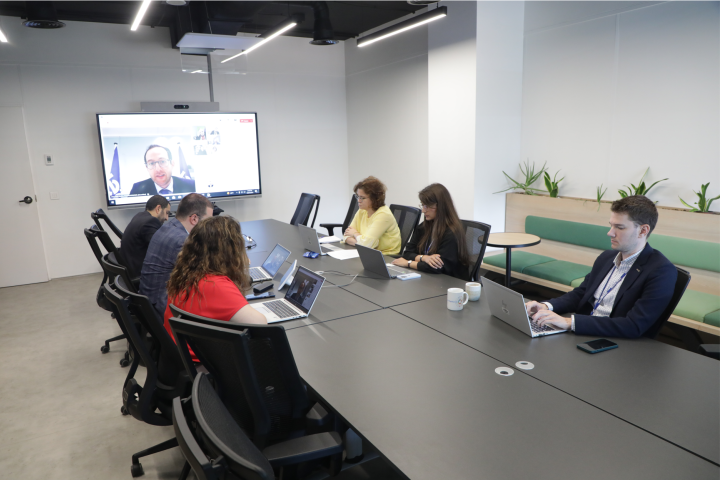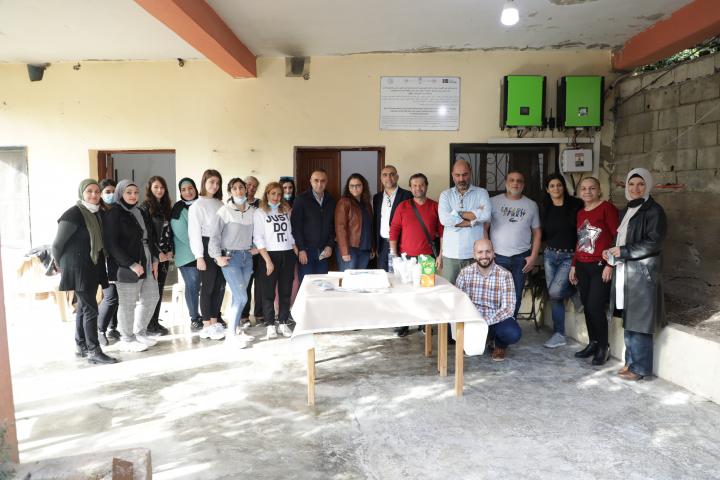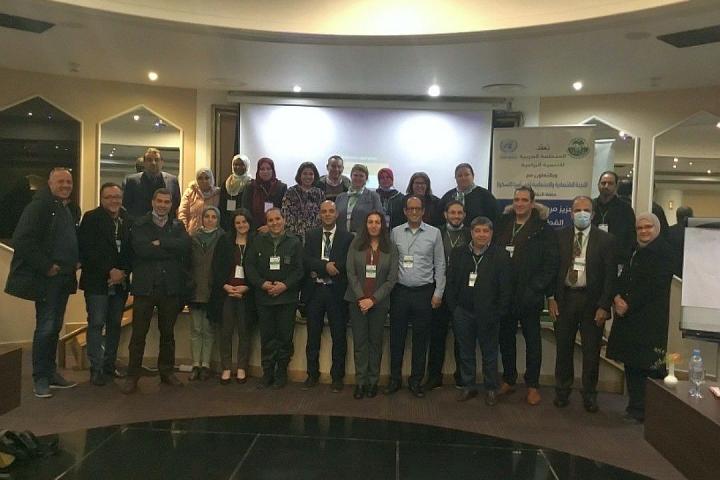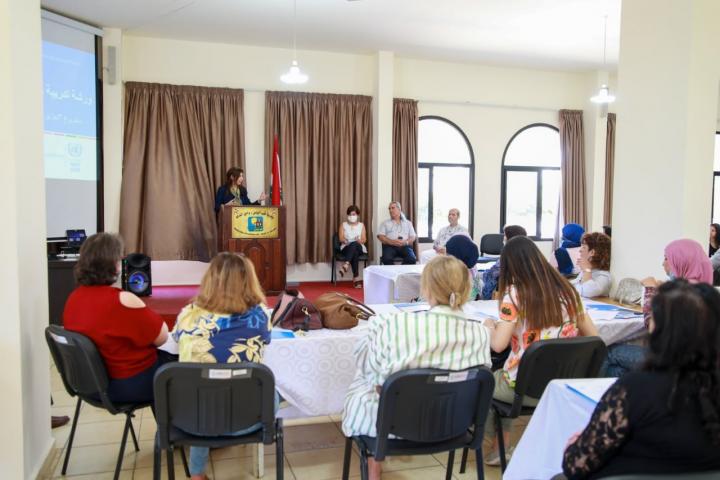Beirut, 22 March 2012 (UN Information Services) — United Nations Secretary General Ban Ki-moon said agriculture is by far the main user of freshwater, and unless we increase our capacity to wisely manage its use, we will fail to end hunger and we will open the door to a range of other ills, including drought, famine and political instability. The admonition came in a message by Ban on the occasion of the World Water Day, which was marked today by at the UN House in Beirut by ESCWA, the Food and Agriculture Organization (FAO) and the UN Information Centre in Beirut (UNIC). The event was held under the patronage of the Lebanese Minister of Agriculture Hussein Al Hajj Hassan and Lebanese Minister of Energy and Water Gebran Bassil and in their presence. Agronomy students from Lebanese universities, diplomats and a host of UN and Lebanese officials attended the ceremony that was followed by a panel discussion on the “Challenges of Water and Food Security in the Arab Region.” UNIC Director Bahaa ElKoussy read Ban’s message, in which the UN chief said that over the coming decades, feeding a growing global population and ensuring food and nutrition security for all will depend on increasing food production. “This, in turn, means ensuring the sustainable use of water,” he said. Ban urged all partners to fully use the opportunity provided by the UN Conference on Sustainable Development, or Rio+20, which will be held in Rio De Janeiro, Brazil, in June. He also stressed the need to connect the dots between water security and food and nutrition security in the context of a green economy. “Water will play a central role in creating the future we want,” he concluded. For his part, Bassil highlighted the importance of Lebanon’s role in addressing water issues in the region and alleviating the crisis. He referred to two factors in that respect: resources and geographical location. According to the minister, resources are available but lack good management, adding that if these resources are misused, conflicts will arise. The Lebanese minister said his country enjoys a strategic geographical location and is rich in water resources. He pointed out that the Lebanese Council of Ministers approved a national strategy for the water sector based on integrated management principles of water resources. Hajj Hassan said no country can exist in isolation, and Lebanon is therefore linked to the Arab region in terms of food and water security. He criticized national officials obstructing the country’s budget allocations for a “green plan” and the Ministry of Energy and Water, wondering if they didn’t realize that “investing in water is vital.” The minister pointed out that the amount of water used in agriculture should not be considered high, because agriculture provides indispensable food, and he instead called for improving irrigation management. ESCWA Director of Sustainable Development and Productivity Division Roula Majdalani stressed the importance of this year’s World Water Day with its theme of “Water and Food Security” shedding light on these two inseparable facets. Food security derives from water security, she explained. Majdalani said the Arab region suffers from water scarcity, and that agriculture consumes 70-90 percent of water supplies while more than 50 percent of the region’s food needs is imported. FAO’s representative in Lebanon Ali Moumen stated that the global challenge of ensuring sustainable food security and good management of water resources raises concerns among specialized UN agencies in this region, especially with the growing rate of water consumption, scarcity of resources, child mortality and climate change. Moumen called for exerting joint efforts to achieve the Millennium Development Goals. Regional advisor in the Statistics Division of the United Nations Department of Economic and Social Affairs Ricardo Martinez Lagunes said that food security is only possible if we have water security. “We need to find integrated solutions for all the crises we are facing, and for that we need to have integrated information and statistics,” he concluded.
- الرئيسية
- World Water Day At ESCWA Urged Optimizing Water Use
الأمانة التنفيذية
اللجنة الوزارية
مجموعاتنا المتخصصة
نتعاون
الموارد
موارد رئيسية
تحديث
للاتصال



